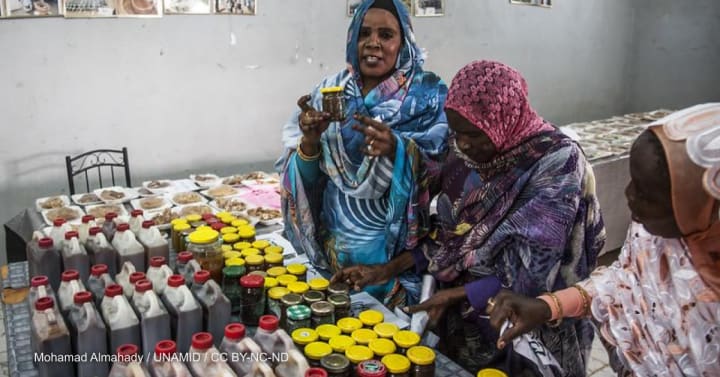
At this time last year, 135 million people across the globe were suffering from acute hunger. But with the effects of the COVID-19 pandemic, this number was projected to double to over a quarter of a billion people across the world.
A new report on food security, published by the United Nations this month, has indeed shown a significant spike in hunger during the past year. Considering previous research found that the world’s farmers produce enough food to feed almost one and a half times the current population, it is a huge failure that such a significant number of people remain hungry today.
Global hunger was already very much on the agenda during the annual session of the Food and Agriculture Organization’s Committee on World Food Security earlier this year. It included a call to transform global agri-food systems and to support the fight against food poverty and hunger. Considering this, and the latest figures that highlight just how critical the situation has gotten, what are some of the things the agri-food systems industry needs to collaborate on to help eradicate global hunger?
A good starting point is the optimization of food production. Global hunger is the sum of many moving parts, one of which is the current inefficient use of animals for protein production. Reducing the yield gap globally between the genetic potential of animals and crops and actual production is key.
If the global agriculture and food industry comes together and puts in real work on closing the yield gap ... the picture will become much more positive than it is right now.
—Technology has a crucial role to play in eradicating hunger. Greater adoption of digitally enabled, data-driven solutions, for example, is one way to help farmers with more precise information about exactly what, when, and how much to feed their animals, based on sophisticated analytics. Results from this approach include increasing feed conversion ratios, reducing feed waste, and, crucially, increasing animal protein yield.
Adopting digital optimization tools will provide farmers with data insights to supplement their own expertise and increase farm efficiency and yields — consequently, generating more produce to feed the population and reducing the amount of produce that is lost or wasted.
There are clearly barriers to overcome in the wider adoption of this kind of technology — including cost and implementation, especially in low-income countries. But through collaboration and investment in “farm to fork,” this could be a real, key solution in the fight against global hunger.
Another way the agriculture industry can help reduce global hunger is through education and the sharing of skill sets across the sector. Food waste is another example of how industrywide knowledge is crucial. Current estimates note that a third of food produced for human consumption is wasted globally. As much as half of all food in emerging economies is wasted — and in those countries, significant waste occurs after food is harvested but before it hits the market.
However, by sharing knowledge of efficient modern harvesting, storage, and transportation techniques much more widely across agribusinesses and farming communities around the world, we could reduce global food waste.
Furthermore, there’s a need to upskill and equip the entire global food supply chain more generally with the knowledge required to deliver more with less. Some companies in the protein production industry have already begun putting in considerable work to lend support to marginalized small farmers living in emerging economies under extreme poverty, and it's crucial for this to happen on a larger scale.
Nutreco’s own work with small-scale farmers in Nigeria is a useful example. The Catfish Sustainability Project, which launched in 2015, is all about skill-sharing. It has promoted income-generating opportunities through sustainable aquaculture systems. Through regular field visits, advisory services, and support with revolving feed techniques, the project has helped farmers help themselves and improve their production capacity and output.
Dire warnings for pandemic-era hunger levels realized, report shows
Predictions of the pandemic's influence on global hunger levels have been realized as around 118 million more people faced hunger last year than in 2019, according to this year's "The State of Food Insecurity and Nutrition in the World" report.
The project had grown significantly by the end of 2020 with 175 catfish farmers joining the scheme, bringing the total to 642. Although the pandemic affected sales, nearly 48% of the 467 farmers already participating at the beginning of the year — and almost 23% of the new cohort — increased their income from catfish production and marketing by 34.8%. It’s a powerful endorsement of how this kind of support can benefit both lower-income communities and their protein production levels.
With the global population predicted to reach almost 10 billion by 2050, the time to act on ensuring everyone has access to enough food was yesterday. If the global agriculture and food industry comes together and puts in real work on closing the yield gap through worldwide education, knowledge-sharing, and driving innovation in this space, the picture will become much more positive than it is right now.
It is a huge failure of global society that such a significant number of people remain hungry today. If we are to confine this matter to history, we must all work together.





